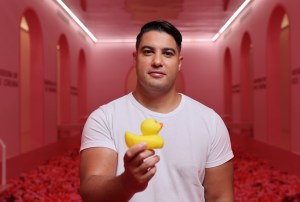
This week on Stuff the British Stole, Marc Fennell takes you deep into the Amazon jungle to unravel an elaborate botanical heist that changed the world.
Look around you. There’s a high chance you’ll spot a piece of rubber.
It’s everywhere now, but it wasn’t always this way. In the mid-19th century, rubber was like a new kind of gold, igniting the imagination of a rapidly industrialising Western world.
It became a billion-dollar commodity, vital for the revolutionary innovations of the era: steam-engine gaskets in ships and trains, telegraph-wire insulators, bicycle and automobile tyres, and military equipment, including First World War gas masks.
From the 1850s to 1913, the Amazon Basin dominated the rubber trade. Enter Henry Wickham, a British explorer, who in 1876 smuggled 70,000 rubber tree seeds out of Brazil’s rainforests and delivered them to the esteemed scientists of Victorian England at Kew Gardens. The thrilling tale of how Wickham secured those seeds – and the world-changing consequences – is the stuff of legend.
Join Marc as he ventures deep into the Amazon to meet the descendants of the very people the seeds were stolen from. But that’s only half the story. The botanists at Kew managed to germinate 2,700 of Wickham’s seeds, and the seedlings were shipped off to Britain’s colonies – Ceylon, Burma, and Singapore (where Marc’s family hails from). Within a few short years, the rubber trade was firmly in British hands. In Brazil, the collapse of the wild rubber industry signalled the beginning of the Amazon’s deforestation as farmers and ranchers moved in.
However, they needed people to cultivate the plants. Indentured slaves and servants were lured from India to work on these British plantations. This gripping story is equal parts heist movie for the most unlikely of loot, and a tale of how the British Empire exploited Indian workers to amass staggering wealth and power.
8pm Monday on ABC.
links to content on ABC
TV Tonight





